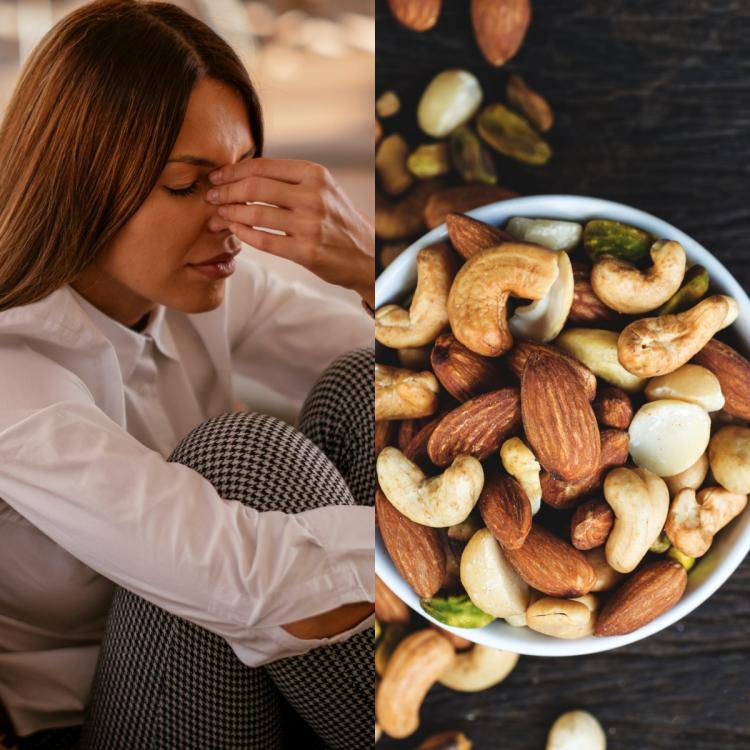Upasana Sharma, Head Dietician, Max Hospital Gurgaon, explains how diet plays an important role in protecting your mental health.
 Mental Health Awareness Week: Dietician Upasana Arora on eating the right foods to maintain mental health
Mental Health Awareness Week: Dietician Upasana Arora on eating the right foods to maintain mental health
You must have heard ‘you are what you eat.’ Your brain also needs the right foods to function properly. Healthy foods that are rich in nutrients like vitamins, minerals and antioxidants act as a fuel for your brain. Many people are still unaware of mental health problems and the importance of maintaining good mental well-being. According to WHO, around one in every five adults experience a mental illness. Depression is one of the most common mental disorders in the world. And it has a lot to do with what you eat.
We asked Dr Upasana Arora, Head Dietician, Max Hospital, Gurgaon about how diet plays a role in mental health and what you should eat to preserve it. She says, “feeling good comes from what you eat and don’t eat. Your diet should have enough nutrients to fuel the brain.” Take advice from Dr Arora on how you should maintain your mental health by eating the right foods.
Role diet plays in mental health
Diet plays a crucial role in taking care of our mood. The ability to focus and concentrate also comes from a supply of energy. For instance, if you don’t include healthy carbs in your diet, it can affect your glucose levels and make you feel irritable, tired and depressed.
There is a chemical in our brain known as serotonin, also called the mood hormone, needs amino acids that are commonly found in certain foods. A deficiency in serotonin levels can lead to mood disorders, anxiety and depression. A healthy diet rich in essential nutrients like protein, fibre, healthy carbs, and more can help take care of your mood and energy levels.
Foods to include in your diet
1) Changes in blood sugar levels can affect a person’s mood and mental status. Eating regularly is very important to keep the blood sugar levels in check. Also, choose foods that are rich in fibre and proteins.
2) Choose energy-boosting foods such as nuts, whole grains, protein-rich foods to manage mood swings. Foods like sweets and biscuits are high in carbohydrates, eating these foods don’t help the body in any way.
3) Follow the 5-meal plan. Three large meals: breakfast, lunch and dinner, and two small meals: one after breakfast and other after dinner. Breakfast should be rich in proteins and fibre. Lunch and dinner should include whole-grains along with other nutrients. You can have fruits before lunch and some nuts along with a milkshake or lassi before dinner.
4) Eat gut-healthy foods. Gut health is the reflection of how you feel emotionally. For instance, if you’re stressed or anxious, it may slow down your gut. So, eat foods that are beneficial for the gut.
5) Drink plenty of fluids like water or coconut water throughout the day to support gut health. Staying hydrated helps get rid of the toxins in the body and promotes better digestion. Dehydration, on the other hand, can lead to constipation and put you in a bad mood. Drink at least 10-12 glasses of fluids in a day.
6) Eating the right kind of fats is crucial to maintain mental health. This is because the brain needs fatty acids to work properly. Olive oil, sunflower oil, mustard oil and sesame oil are some of the good options to add to your diet.
7) Follow rainbow diet – one that includes foods of different colours. Eat at least 5-6 different coloured fruits and vegetables in a day.
Foods to avoid
1) Do not eat large portions in a day. Instead, follow the 5-meal plan with foods rich in essential nutrients like proteins, carbohydrates, fat, vitamins, minerals and water to keep your brain health in check.
2) Tea, coffee and tetra pack juices should be avoided to maintain healthy levels of caffeine in the body. Caffeine is a stimulant which can give you a quick burst of energy. However, excess caffeine can make you anxious and depressed. It can disrupt your sleep patterns, especially if consumed before going to bed. If you crave a warm drink, you can have a herbal tea or decaffeinated drink to avoid a buildup of caffeine in your system.
3) Avoid eating high-calorie, fried foods. Instead, opt for a healthy salad or fruits to curb hunger.
4) Avoid packaged foods that have trans-fat or hydrogenated fats written on their label.
5) If you suffer from a nutrient deficiency, do not take supplements without consulting your doctor.
ALSO READ: Mental Health Awareness Week: Psychologist Sahana Tantry on stigma, lack of awareness, therapies and more
ALSO READ: 7 health benefits of deep breathing will compel you to start practicing it every day
Credits :Pinkvilla, getty
This Day That Year
Your comment has been submitted to the moderation queue


